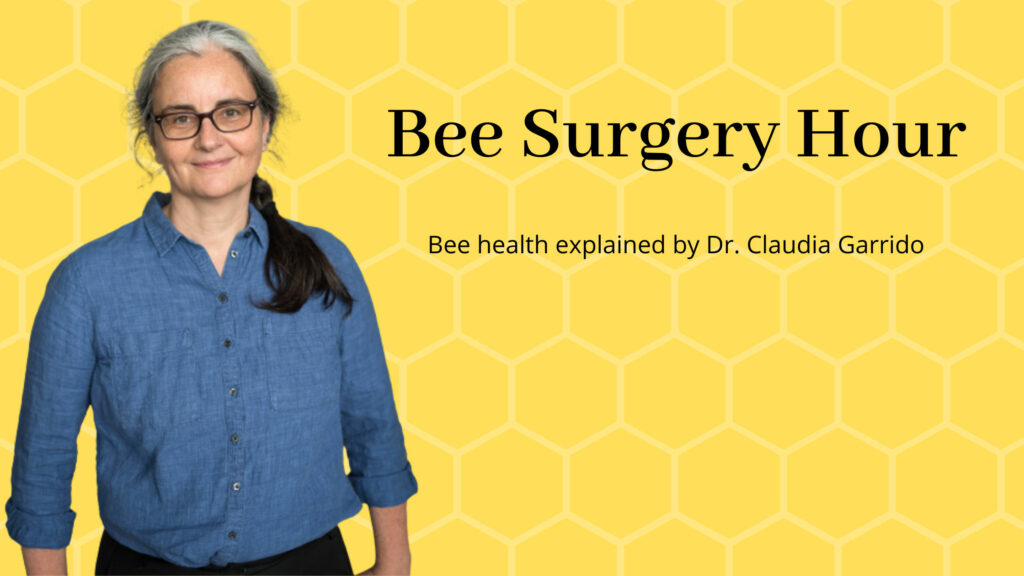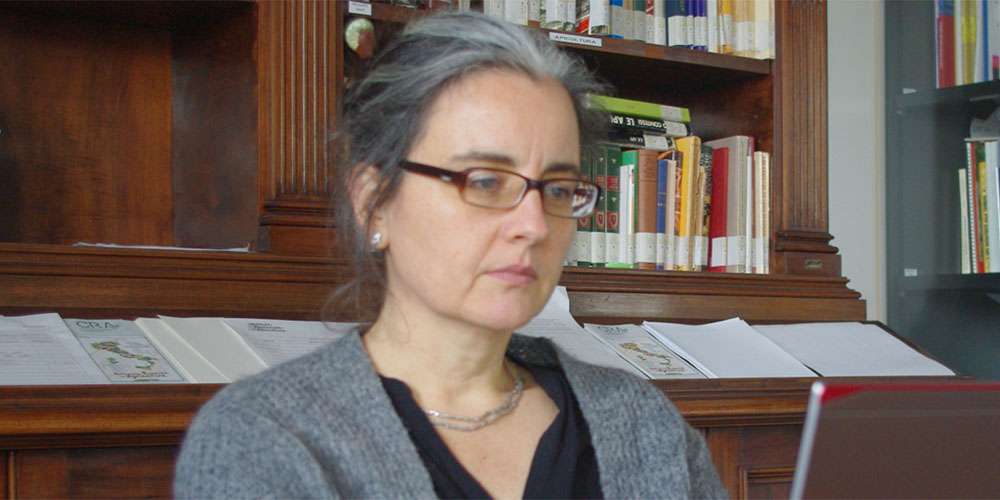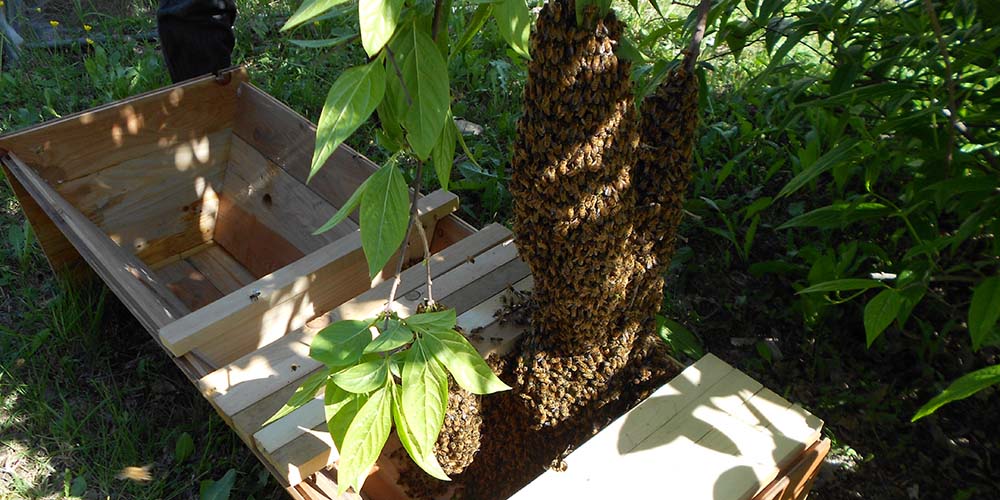In the past two years I often heard “There’s no glory in prevention.”. This is one of the reasons why New Year’s resolutions often fail. It’s the gap between the instant gratification of staying on the couch eating chips in contrast of the long-term benefit of exercising and eating healthy. So, very timely for this time of the year, isn’t it?
How this relates to bees? I’ll tell you: It’s true for bee health as well. Looking at it from the perspective of beekeeping as well as for the health of all bees, managed and wild-living species. The thing is: most of the actions we take for bee health are preventive. They’re sometimes small things like a beekeeper taking the habit of improving his practices. Sometimes huge and overwhelming like conservation of bee habitat and bee species. It’s all preventive.
The glory in prevention for beekeeping
Let’s start with the managed bees. Beekeepers should treat varroa mites before seeing the effects of the infestation. The word “treatment” is somewhat misleading in this context. We’re used to take meds when we have symptoms of a disease, pain, or a chronic condition like hypertension. Varroa infestation may be most comparable with a chronical condition. Varroa treatments aren’t miracle cures, they don’t eliminate 100% of the mites. The parasites that remain reproduce, feed on adults and brood, and transmit viruses. They build up to higher infestations that weaken the colony. You will have to treat again.
This is why I compare it with a chronical condition: High blood pressure may go unaware for a while. You may control it with exercise and nutrition for some time. But as soon it reaches a pathological level you’ll have to take those pills every day. At least, you don’t have to treat against varroa every day. Two treatments a year, done properly and at the right time are enough. But you have to do it consistently. There’s a recent paper showing that compliance with recommended treatment schemes improves the winter survival of honey bee colonies.
Interestingly, the same paper also shows that beekeepers informed about the consequences if they don’t treat correctly do it more often. Which shows again how important it is to show people the effects of their actions. There are many more diseases and parasites. Of minor importance, perhaps. However, also in this case it’s better to prevent than cure: Good nutrition, hygiene, and other good practices will help to keep colonies healthy. This isn’t a guarantee, it’s not the recipe for eternal life. Life, unfortunately, isn’t black and white like that. But disease and misfortune don’t happen as often.
The glory in prevention for bee conservation
Prevention and good practices in managed bees also help wild living bee species. We know that a scaringly high number of honey bee pathogens spill over to other insects. We know much less about the consequences for them. Wild insects don’t have a beekeeper on their side caring for their health. Not all species are good hosts for honey bee pathogens. Both wild and managed bees profit from biodiversity. Another recent paper discusses the importance of floral diversity for wild bee health and their conservation. I will discuss this at another occasion. Now, the important point is that this also means the conservation of habitat and resources.
On the other hand, we all know how many interests there are involved when it comes to habitat conservation. Despite mocking headlines like “Hundreds of jobs lost because of a butterfly” aren’t as frequent than years ago, many still don’t understand the preventive value of biodiversity. It’s the short-term gain over the long-term consequences. I know this may be provocative, but we argued like this far too long. Without considering the consequences for nutrition, poverty, and yes, also pandemics.
Health, nutrition, and education
Readers of my Bee Health letters know this story already. But in this context it fits so well I need to share again: My father was a physician in Chile in the early 1970s. It was a time of hope and transition and he worked together with others on building a fair and efficient health care system. This included preventive measures like vaccines, nutrition plans, and health education. Then, the putsch of 1973 came, and we had to leave our country. But I grew up with the awareness that health, nutrition, and education are the foundation of a better life, a better world. Paired with my mother’s immense sense of justice, this formed who I am as a person and as scientist. They also taught us to always do what we can to work on the larger picture. Prevention, if you will. That’s what I try to do with promoting bee health.
So, in my humble opinion, there IS glory in prevention. The quiet kind of glory. Not as eye-catching like saving somebody from an acute condition, perhaps. But nonetheless important and life-changing. I’m convinced that most people are capable of doing their little bit. It’s a choice. Like getting a vaccine, eating healthy or encouraging your children to learn about our world. In this sense, do what you can, stay healthy, and have an excellent year 2022.

By the way, if you want to get the stories I have to tell, news on courses about bee health and some things I share nowhere else, subscribe to my Bee Health Letters. You can do so with the form down below. If you need help, watch this short video.



